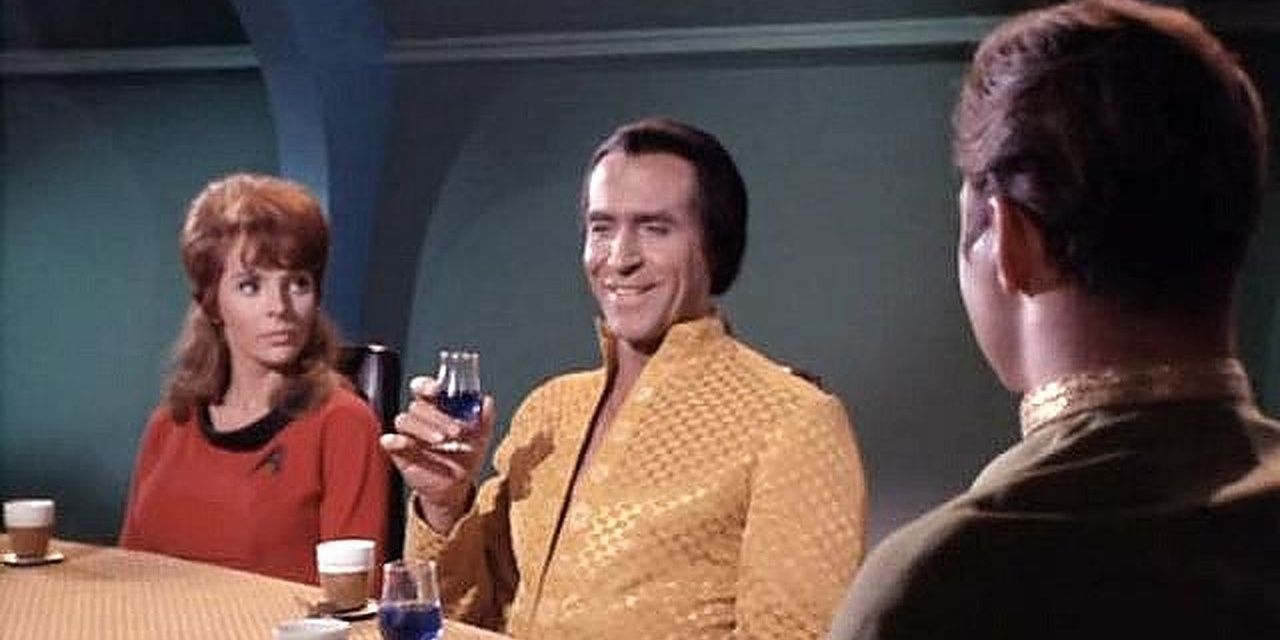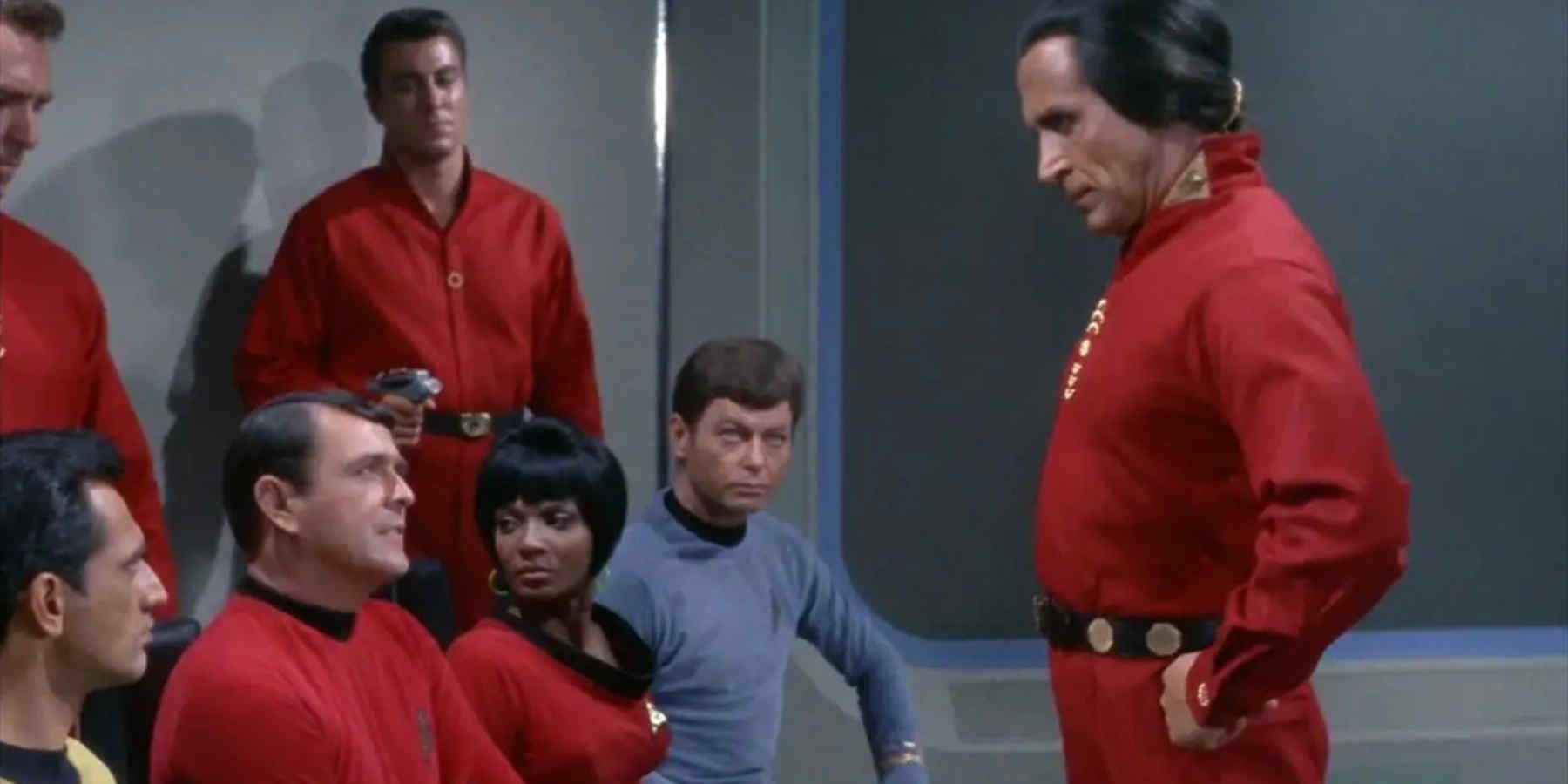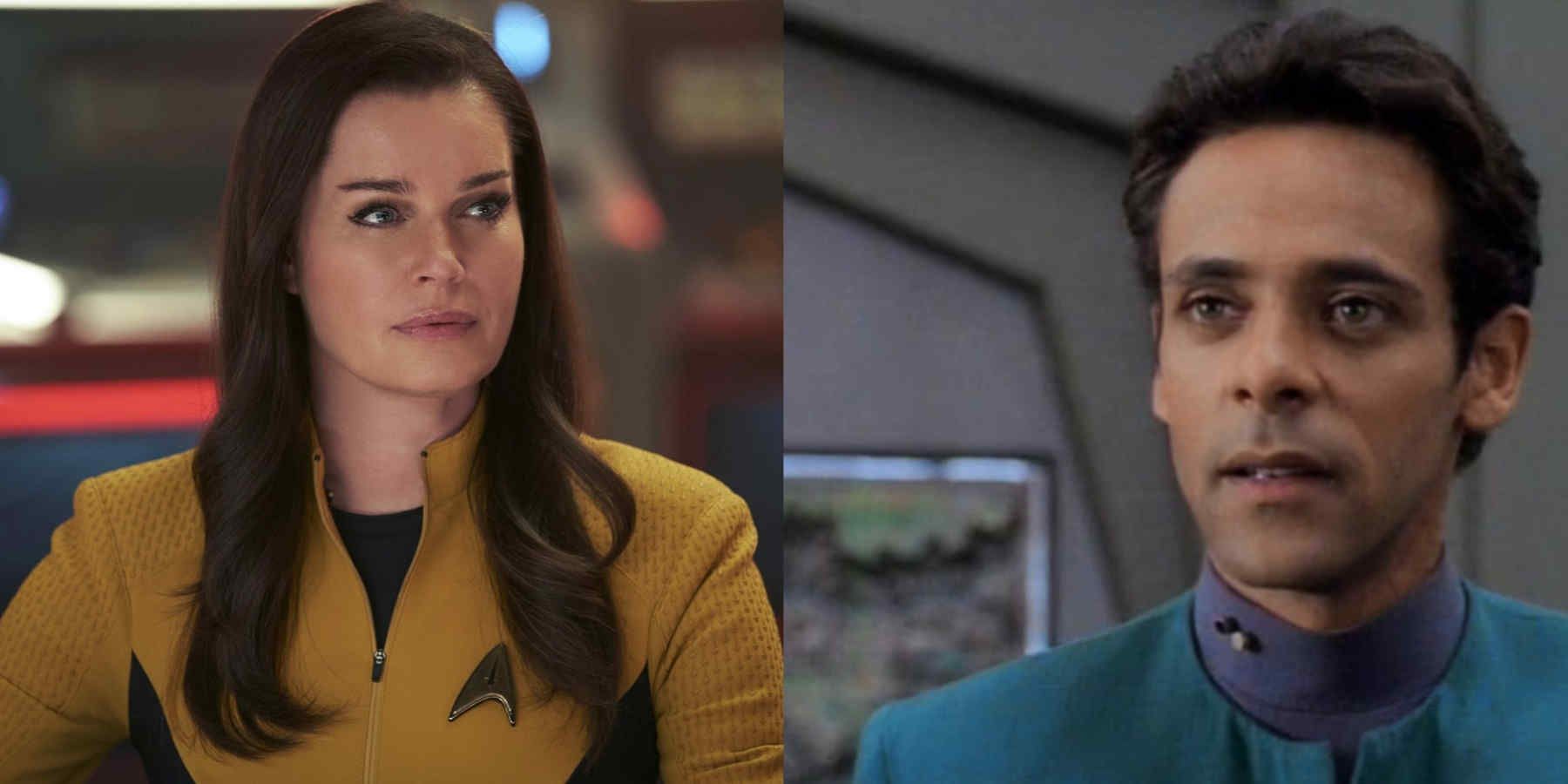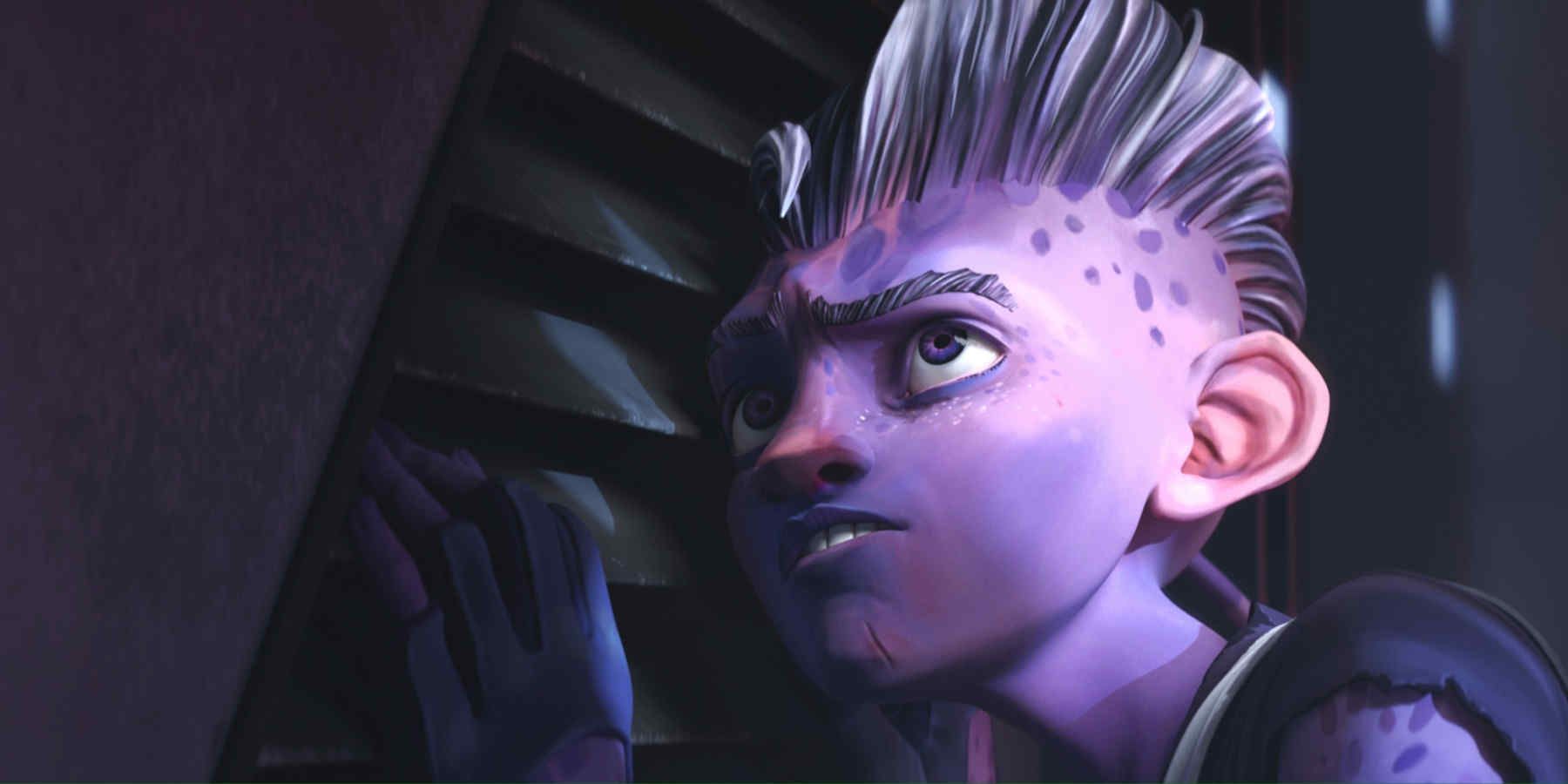Unveiling Khan's Remarkable Legacy: A Journey Through Star Trek's Iconic Character
Unveiling the lasting impact of Khan Noonien-Singh's genetic engineering, this article delves into Starfleet's persistent fear and explores the presence of genetically modified characters in the Star Trek universe
Star Trek utilized Khan Noonien-Singh (Ricardo Montalban) to introduce the concept of genetic engineering into the franchise, which subsequently had negative consequences for future generations. Khan's desire for world domination posed a significant threat to Starfleet officers, thus making genetic engineering appear dangerous. Additionally, Khan's attempt to manipulate Captain Kirk (William Shatner) and transform the Enterprise crew into subservient followers caused genetic engineering to be viewed as untrustworthy. Consequently, individuals with genetic modifications are prohibited from joining Starfleet due to concerns about potential abuse of Federation resources and secrets.
However, this standpoint fails to consider situations where genetic alterations occur involuntarily in children too young to give consent. The judgment also overlooks instances where genetic enhancements are deeply ingrained in cultural practices, as demonstrated in Strange New Worlds. Similarly, the potential harm caused by negative stereotypes towards genetically engineered teenagers is disregarded in Prodigy. This one-sided focus solely on the belief that genetic alterations are inherently bad fails to acknowledge the circumstances in which individuals may have had no control over their genetic modifications. Nonetheless, the fear surrounding genetic engineering is justified, particularly for those familiar with the Eugenics Wars and Khan's involvement in them.
Who Was Khan Noonien-Singh?
Self-improvement is always beneficial, and Star Trek has always prioritized it in the quest to move past past human atrocities. However, there is a distinction between striving to be the best version of oneself and using science to surpass others. In the late 20th century, scientists initiated Project Khan to create and study genetically enhanced individuals. This resulted in the birth of Augments, who possessed heightened senses, strength, and intellect surpassing their non-enhanced counterparts. The Original Series provided a glimpse into this unsettling reality when Khan attempted to seize control of the Enterprise in season 1, episode 24, titled "Space Seed."
Khan proved to be exceptionally cunning and intelligent, but he also exhibited manipulative and controlling tendencies, accompanied by a volatile temper. When the Enterprise stumbled upon Khan's abandoned ship in space, they were unaware of the identity of its occupant until it was too late. It was later revealed that Khan was the same genetically-enhanced tyrant who once ruled over vast territories from Asia to the Middle East during the Eugenics War. Exploiting Lt. Marla McGivers' infatuation with powerful warmongers of the past, Khan coerced her into aiding him in his quest for control over the ship. Khan's initially charming demeanor gradually transformed into arrogant cruelty, as he threatened to kill the Enterprise crew unless they complied with his demands, alongside his fellow Augments.
Why Is Starfleet Still So Afraid?
Fortunately, Captain Kirk and his crew proved themselves as resourceful problem-solvers in difficult situations. When Khan allowed an Augment named Joaquin to repeatedly assault Lt. Nyota Uhura, it only served as further motivation for the crew. They successfully regained control of the ship from Khan and his followers, who were subsequently sentenced to isolation on the uninhabited Ceti Alpha V. This action would later lead to the disastrous events in Star Trek II: The Wrath of Khan, where the Augments came dangerously close to regaining power, causing Starfleet to become even more apprehensive about genetically enhanced individuals.
During the Eugenics War from January 2, 1992, to June 7, 1996, the Augments became consumed with their own individual power and began turning against each other. This internal conflict prevented them from collectively gaining control of the galaxy. This war, along with Khan's actions, is what immediately comes to mind for most Starfleet officers when they hear about genetic modifications. They fear that the Augments may one day return, seeking domination in a manner that cannot be stopped. Furthermore, there is also a concern about scientists unknowingly creating monsters while attempting to enhance human capabilities.
Genetically Modified Star Trek characters
As a result of this fear, the Federation implemented a ban on genetically enhanced individuals from serving in Starfleet. However, this ban only prevented potential applicants from being truthful about their genetic enhancements. In the case of Dr. Julian Bashir from Deep Space Nine, it was revealed in season 5, episode 16, "Doctor Bashir, I Presume," that his parents had genetically enhanced him as a child. Amsha (Fadwa El Guindi) and Richard (Brian George) Bashir believed they were giving him a fair opportunity to overcome his difficulties in school. Unfortunately, this decision left him burdened with a dark secret, which nearly resulted in his imprisonment once Starfleet discovered the truth.
A similar situation occurred with Una Chin-Riley/Number One (Rebecca Romijn) on Strange New Worlds when Starfleet uncovered her Illyrian heritage. The Illyrians were a race of beings known for utilizing genetic engineering to adapt themselves to their environments. This information was revealed in season 1, episode 3, "Ghosts of Illyria," and later led to Una's arrest in season 1, episode 10, "A Quality of Mercy." Currently, she is facing trial in season 2, and fans eagerly await the outcome. It is ironic, considering fellow crewmember La'an Noonien-Singh (Christina Chong) is a direct descendant of Khan and even carries his last name, yet she has faced fewer obstacles in her career compared to someone whose only connection to genetic alterations is through their past experiences with enhancements.
Dal R’El, portrayed by Brett Gray, has perhaps the most tragic backstory when it comes to his genetic enhancements. As a human hybrid, Dal's genetic makeup consists of a remarkable combination of 26 different alien variants. Similar to Una and Bashir, Dal did not have a say in this alteration. However, what sets him apart is that he was still tender in age when his unique composition was revealed, leaving him susceptible to the manipulations of a zealous geneticist in Star Trek: Prodigy. In episode 15 of the first season, titled "Masquerade," Dr. Jago, expertly played by Amy Hill, exploited Dal's vulnerabilities and implanted a chip that would activate his enhanced genes. Fortunately, it was the swift actions of Dal's loyal crew and friends that saved him from becoming a distorted version of himself.
Genetically enhanced individuals often face a recurring issue - a lack of autonomy. Furthermore, it is evident that Starfleet's priority lies not in comprehending their experiences, but rather in exploiting them to establish a precedent.
Khan has left a lasting impact on Star Trek fans, who have admired everything from his personality to his attractive appearance. However, Starfleet has a significantly different perspective on Khan and other Augments, primarily due to the undesirable aspects of humanity that Khan represents. The Federation has long been determined to conceal and forget about the Eugenics War and its progenitors, the Augments. They seek to create a division between their hopeful present and their dark past.
Nevertheless, history repeats itself when its lessons are disregarded and ignored. Eventually, Starfleet will have to confront the past and stop punishing innocent individuals. When that day arrives, Star Trek will enter a new era in how it embraces and treats genetically enhanced individuals, hopefully leading to positive change.

















